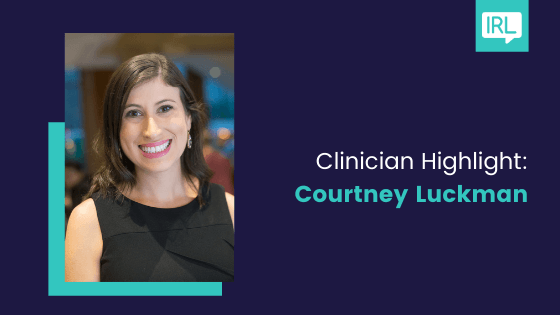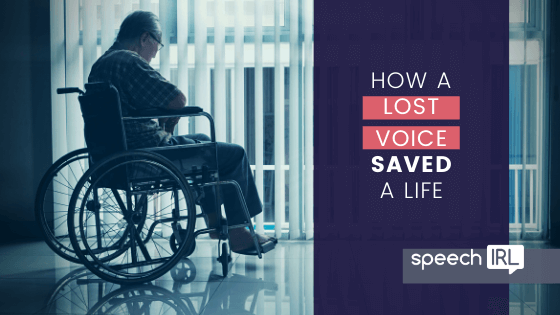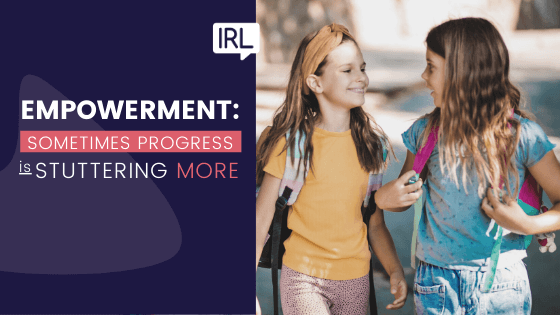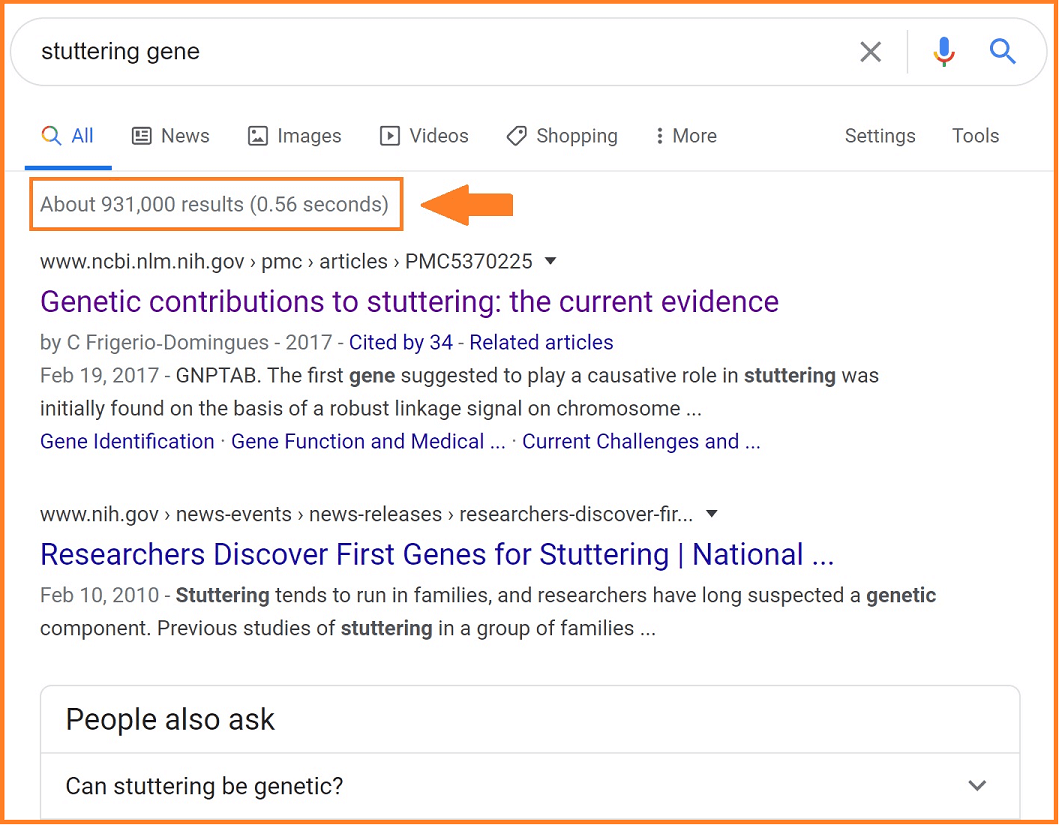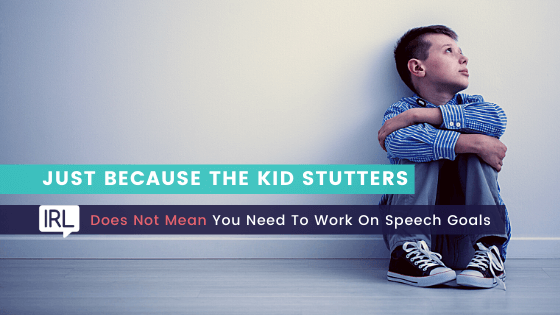“The reason that we do what we do and the reason I’m so passionate about this—think about all the kids that receive speech therapy in school. They grow up, and they still need that support. They still need that help.”
“You gain strength, courage, and confidence by every experience in which you really stop to look fear in the face. You are able to say to yourself, 'I have lived through this horror. I can take the next thing that comes along.' You must do the thing you think you cannot do.”
The case for improved quality therapy, better relationships with clients, and a personal sense of pride and integrity in our work.
My good friend, Melanie, had a new year’s resolution a few years back to do something each month she was “bad at.” It reminded me of a recent beach volleyball game I’d reluctantly participated in. In the game I’d missed every pass and then got slammed in the head by the ball right when the game was over. I thought, “Why put herself through that?”
This past year has been one of vulnerability for me, moving to a new state and taking up the responsibilities as Director of speech IRL West. This, of course, was all during COVID, while still experimenting with the newness of motherhood. I have surely made mistakes (“sorry, I meant 2:00 pm PST, not CST”), been wrong (insurance codes are tricky), and struggled through the process (you cannot guarantee toddler naps!). And I have found a more authentic way of connecting with my clients on the journey.
Read moreSLPs are masters of goal writing. We spend literal years learning how to write specific-measurable-actionable-relevant-time-bound goals. We craft robust, descriptive targets in the restrictive ecosystem of IEP, insurance, and Medicare requirements.
Most SLPs I meet are never satisfied with their goal writing. This is a good thing! It’s a sign of how seriously we take goals and therapy plans, that we are always seeking ways to improve.
In the spirit of improvement, there’s something I want to call attention to in our standard practice goal writing: ableism.
We’re taught to write goals a certain way (SMART, IEP-compliant, etc.). Unfortunately, that “certain way” (that we’re shamed for not following, when in graduate school) is rooted in ableism. As our field grapples with how social justice issues apply in a speech therapy context, we need to examine why we write goals and how we write goals.
So, let’s start.
Read moreI’ve worked with speech therapy clients in all sorts of unique situations over the years. It’s always sad to see them go, but very rewarding to see the change in them once they have achieved their goals. Each client takes a different path through the different areas we cover in speech therapy: naming their goals, learning about the speech apparatus and communication techniques they’ll be using, practicing exercises and working on other activities, etc. But a few clients will always stand out in my mind, such as this one from my first year of practice. Mr. James (name changed) was staying at a skilled nursing facility. The first time I visited him was quite awkward.
“Katie, can you screen Mr. James in room 103 for speech? He’s kind of hard to understand.”
Read moreIn our previous blog on education goals for speech therapy, we outlined some education-focused goals and activities for IEP students who are “over” speech therapy. Some students just don’t want to work on speech goals, and that’s perfectly fine! Empowerment is the second E in our 3Es model of stuttering therapy, and it’s another goal area you can work on to make IEP minutes that doesn’t involve speech goals.
It follows that while the student makes progress with empowerment, it might not look like progress on the outside: I had a parent come to me once, concerned that her 12 year old was stuttering more after coming to speech therapy for a few weeks.
“Great!” I said to mom. That is exactly where we want to be.
Uncomfortable and confused, mom wanted answers. I asked her,
- Is she talking more?
- Is she saying feared words, instead of avoiding them?
- Is she participating in class and/or social interactions more?
- Is she stuttering confidently?
Mom answered yes to all of these questions.
Read moreOn Thursday night, I shared joy with so many others around the country. We watched and listened to Brayden Harrington as he spoke openly about stuttering at the Democractic National Convention. He exuded confidence, eloquence, and charisma while showcasing his powerful voice. The next day, #BraydenHarrington was trending on Twitter.
It is difficult to describe in words how emotional and impactful this moment was for the stuttering community. Stuttering is one of the oldest-known human experiences, dating back to Greek philosophers and Old Testament figures. Despite this history, stuttering continues to be misunderstood and miscategorized, with discrimination faced daily by people who stutter.
Brayden was a sign that maybe now, in 2020, things are finally different. Members of the stuttering community and professional community have joined forces for decades to educate the public, dispel harmful myths, and advocate for the rights and dignity of people who stutter. Could a Presidential candidate, and his 13-year-old friend, be a sign that this has finally paid off?
We all thought so, but the New York Times proved otherwise.
Read moreI received an email from a graduate student this week, asking for advice about a fluency client in an upcoming school placement. The student described a very, very common scenario that school-based SLPs encounter with stuttering students who have IEPs. If you’re a school-based SLP diving back into IEPs after summer break, there’s a good chance you’ll encounter one or two students like this:
"The student does not describe his disfluency in any specific way. His current goals include working on breathing techniques and easy onsets. He is unaware of his difficulty with coordinating speech with breath, and talking too fast through each breath. My supervisor noted that he is very unmotivated to participate in therapy. She expressed that this became even more difficult with the transition to remote therapy in the spring, and that is how we will be delivering his services this fall as well. He is entering 4th grade, and apparently is very 'over' going to speech therapy."
Sound familiar?
- Kid with disfluent speech pattern has goals to “modify” the atypical patterns.
- Kid doesn’t care to work on modifying his speech.
- Kid is “over” therapy in general.
- Kid has an IEP, so you have to meet the minutes.
- BONUS: we’re doing telepractice! *sobs*
Video conferencing apps like Zoom have become a daily life staple, for work, play, and personal connection. As we adapt to a socially distanced lifestyle and routine, this medium of communication is getting harder for many, not easier. “Zoom fatigue” is real. Video-based communication requires more intense focus and attention than face-to-face communication. We have to filter out pauses, glitches, background noise and other distractions while processing what others are saying. Your brain does all this receptive processing first, and then you need to determine what to do with that information or how to respond. If you are feeling drained and slogging through your days at the computer, you are definitely not alone. More time to adjust won’t make you less exhausted.
Read moreThe 3Es is a therapy planning tool we are developing for clinicians, therapists, and our clients. It is designed as a supramodel, meaning that every single therapy approach fits within the 3Es. The model can be used to understand different approaches and how they relate and compare to one another.

Chicago, IL
312.870.0352

Chicago, IL
312.870.0352

8 S Michigan Ave Suite 812
Chicago, IL 60603
312.870.0352

8 S Michigan Ave, Suite 812
Chicago, IL 60603
312.870.0352

